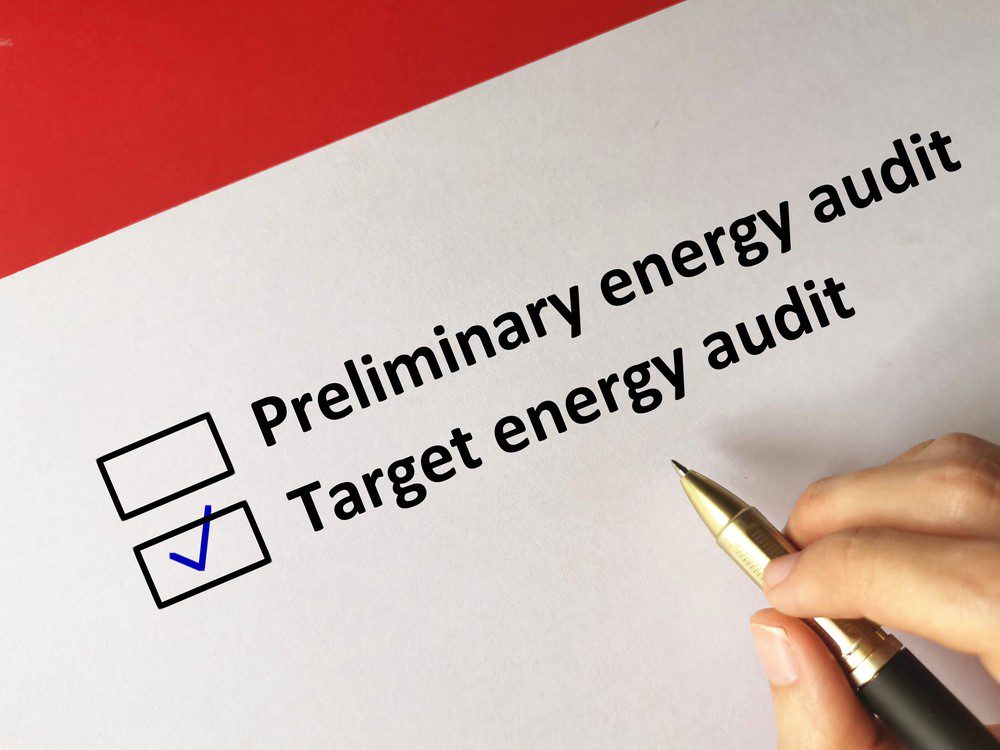Introduction
Renewable energy has emerged as a vital solution to the pressing challenges posed by traditional energy sources. As the world becomes increasingly aware of the need to transition towards sustainable alternatives, commercial renewable energy services are driving an energy revolution. In this blog post, we will explore the growing importance of renewable energy and its impact on reshaping the industry. By embracing sustainable alternatives, businesses are not only reducing their carbon footprint but also reaping numerous benefits in terms of cost savings, brand reputation, and long-term sustainability.
The Current State of the Energy Industry

The traditional energy industry heavily relies on fossil fuels, such as coal, oil, and natural gas. However, these finite resources come with significant challenges and limitations. With limited reserves, rising fuel costs, and detrimental environmental impacts, it has become apparent that sustainable alternatives are necessary.
One of the key challenges of traditional energy sources is their finite nature. Fossil fuels are being depleted at an alarming rate, leading to increased extraction costs and price volatility. This volatility poses risks to businesses as energy costs can heavily impact on their operational expenses and profitability. Moreover, dependence on fossil fuels makes businesses vulnerable to geopolitical tensions and supply disruptions.
Furthermore, the environmental impact of traditional energy sources is a growing concern. Burning fossil fuels releases greenhouse gases, primarily carbon dioxide, into the atmosphere, contributing to global warming and climate change. This not only poses risks to the planet but also presents long-term challenges for businesses as they strive to operate in a sustainable and environmentally responsible manner.
The Rise of Commercial Renewable Energy Services
Commercial renewable energy services have emerged as a viable and sustainable solution to the challenges posed by traditional energy sources. These services encompass various renewable energy technologies, including solar power, wind energy, geothermal systems, and biomass.
Renewable energy services are specifically designed to cater to the energy needs of commercial entities, ranging from small businesses to large corporations. By harnessing the power of renewable resources, businesses can reduce their dependence on conventional power sources and transition towards cleaner and more sustainable energy alternatives.
One of the primary benefits of renewable energy for businesses is the potential for significant cost savings. While the upfront investment in renewable energy infrastructure may seem substantial, the long-term operational costs are considerably lower compared to fossil fuel-based energy sources. Solar panels, for instance, have experienced significant cost reductions in recent years, making them a cost-effective option for businesses to generate their own electricity.
Additionally, adopting renewable energy solutions enhances a business’s brand reputation. With increasing consumer demand for environmentally responsible products and services, businesses that prioritize sustainability and invest in renewable energy differentiate themselves in the market. Such businesses are viewed as socially and environmentally conscious, attracting customers who value sustainability and creating a positive brand image.
Several leading companies have already embraced commercial renewable energy services and experienced remarkable success. For instance, Google has made significant investments in renewable energy, powering its data centers with wind and solar installations. Walmart, too, has prioritized renewable energy, aiming to meet 100% of its energy needs from renewable sources. These success stories serve as vibrant examples of how businesses can effectively incorporate renewable energy solutions into their operations and achieve both environmental and economic benefits.
Reshaping the Energy Industry
Commercial renewable energy services are reshaping the energy industry in multiple ways. As more businesses adopt renewable energy solutions, the overall demand for traditional energy sources decreases, leading to a transformation in the energy landscape. This shift contributes to the diversification of the energy mix, reducing dependence on fossil fuels and promoting a sustainable and resilient energy system.
Furthermore, the widespread adoption of commercial renewable energy services has significant economic implications. The renewable energy sector offers opportunities for job creation, as the installation, maintenance, and operation of renewable energy systems require skilled professionals. According to the International Renewable Energy Agency (IRENA), the renewable energy industry employed over 11 million people globally in 2018, and this number is expected to continue growing. By investing in renewable energy, businesses contribute to local economic development and help create a sustainable workforce.
Moreover, commercial renewable energy services contribute to energy independence. Businesses that generate their own renewable energy reduce their reliance on imported fossil fuels, reducing exposure to geopolitical risks and volatile fuel prices. By diversifying their energy sources, businesses can achieve greater energy security and stability, ensuring uninterrupted operations even in times of energy supply disruptions.
Overcoming Challenges and Barriers
While the adoption of renewable energy services brings numerous benefits, several challenges and barriers need to be addressed to accelerate widespread adoption.
One common concern is the intermittent nature of certain renewable energy sources. Solar power depends on sunlight, and wind energy relies on wind speed. However, advancements in energy storage technologies, such as batteries, have significantly improved the reliability and availability of renewable energy. Energy storage systems enable businesses to store excess energy generated during peak periods and use it during low-demand periods, ensuring a consistent power supply.

To further accelerate the transition to renewable energy, government policies and incentives play a crucial role. Favorable regulations, such as feed-in tariffs and tax credits, encourage businesses to invest in renewable energy solutions. Governments can also support research and development efforts to drive technological advancements in the renewable energy sector, making it more accessible and cost-effective for businesses.
Technological advancements have been instrumental in the growth of commercial renewable energy services. Innovations in energy storage, smart grid systems, and efficiency improvements have made renewable energy more reliable, efficient, and accessible. For example, the development of more efficient solar panels and wind turbines has improved the performance and cost-effectiveness of these renewable energy technologies. Businesses can leverage these advancements to maximize the benefits of renewable energy and overcome any remaining hurdles.
Outlook and Opportunities
The future of commercial renewable energy services in the commercial sector looks promising. As technology continues to evolve, we can expect increased efficiency, lower costs, and greater integration of renewable energy solutions. For instance, advancements in solar power systems may lead to more affordable and efficient solar panels, making them an attractive option for businesses of all sizes.
Emerging trends and innovations present exciting opportunities for businesses to actively participate in the renewable energy revolution. For example, blockchain-based peer-to-peer energy trading platforms enable businesses to directly trade excess renewable energy among themselves, promoting energy self-sufficiency and reducing costs. Community-based renewable energy projects allow businesses in a particular locality to share and benefit from locally generated renewable energy resources. These developments empower businesses to become active participants in the renewable energy ecosystem, fostering sustainability and enhancing energy resilience at the community level.
By being early adopters of these trends and leveraging the potential of commercial renewable energy services, businesses can position themselves as industry leaders and gain a competitive edge. Embracing renewable energy not only aligns with evolving consumer preferences but also contributes to a cleaner and more sustainable future.
Conclusion
Commercial renewable energy services are at the forefront of reshaping the energy industry. As businesses increasingly recognize the importance of sustainability, adopting renewable energy solutions becomes a strategic imperative. By reducing their reliance on traditional energy sources and embracing renewable alternatives, businesses can significantly reduce their carbon footprint, enjoy cost savings, enhance brand reputation, and contribute to a more sustainable future.
The transition towards commercial renewable energy services brings not only environmental benefits but also economic advantages. Job creation, reduced dependence on imported fossil fuels, and enhanced energy security are just a few of the positive outcomes that businesses can experience. Furthermore, technological advancements and supportive government policies continue to drive the growth of renewable energy, making it more accessible and cost-effective for businesses of all sizes.
As the world moves towards a greener future, it is essential for businesses to actively participate in the renewable energy revolution. By embracing commercial renewable energy services, businesses can lead the way in creating a more sustainable and prosperous world powered by renewable resources. Together, we can achieve a vital energy revolution that not only benefits businesses but also helps preserve the planet for future generations.
Discover how VertPro.com can elevate your property’s energy efficiency to new heights. We are your ultimate destination for all things related to Commercial Energy Audits, Benchmark Compliance consultancy, and access to our state-of-the-art Construction Marketplace. As trailblazers in the industry, VertPro® empowers Building Owners and Property Managers across the nation with innovative SaaS technology-based solutions. From Energy Benchmarking to Energy Audits/RCx Plus, we’re dedicated to ensuring compliance with over 60 Energy Benchmarking and Energy Efficiency Laws.
Now is the time to seize the opportunity to maximize your property’s energy potential and value. Explore VertPro.com’s comprehensive solutions today and let us be the catalyst for the transformation your property deserves. Your energy-efficient future starts here!






 Utilizing solar panels and other renewable energy technologies are becoming increasingly popular to create clean and green energy that can significantly reduce energy bills. In fact, solar systems can generate solar power with no emissions or pollutants, while natural gas is still considered a cleaner alternative to electricity generated by fossil fuels.
Utilizing solar panels and other renewable energy technologies are becoming increasingly popular to create clean and green energy that can significantly reduce energy bills. In fact, solar systems can generate solar power with no emissions or pollutants, while natural gas is still considered a cleaner alternative to electricity generated by fossil fuels.